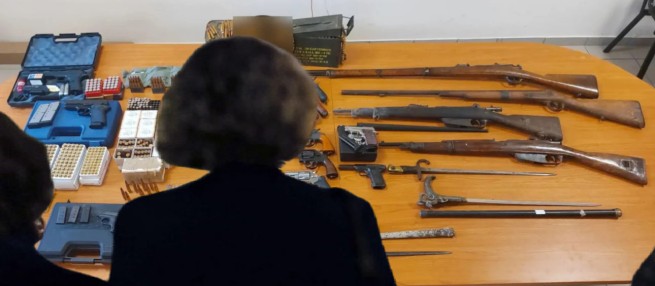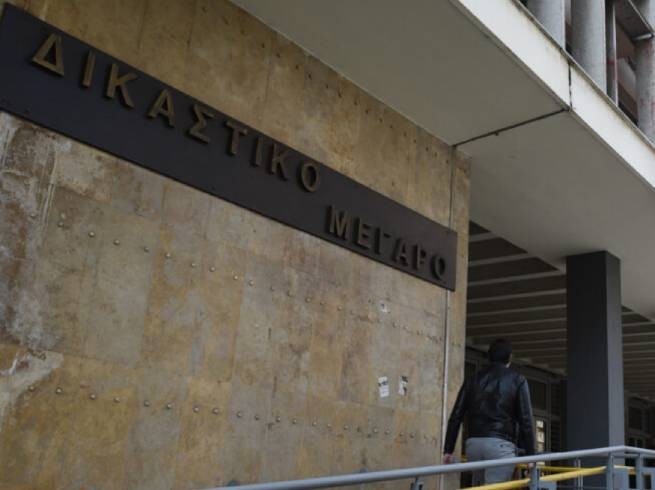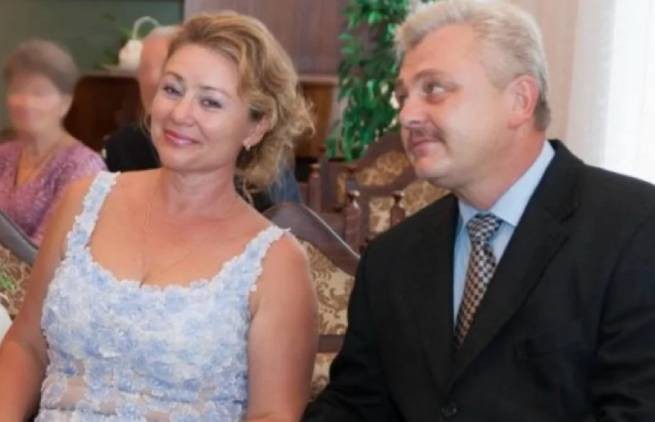The coordinators of the explosions in Europe were an ex-soldier from Russia and a former woman from Kiev. A married couple with Czech citizenship lived on the Chalkidiki peninsula in Greece, where they bought a villa.
Czech police suspect the owner of a Czech passport living in Greece, former Russian soldier Nikolai Shaposhnikov and his wife Elena of espionage in the case of explosions at military warehouses in the village of Vrbetice in 2014, report Czech publications Respekt and Radiožurnál, citing sources familiar with the investigation.
The Shaposhnikovs are Czech citizens who moved there in the early 1990s. By information The Insider, Elena Shaposhnikova has a passport with a number in the range reserved for Russian intelligence officers. The couple, the publication writes, helped the Main Intelligence Directorate of Russia organize sabotage in Europe.
Nikolay Shaposhnikov, tells “Present Time” (Russian-language TV channel with an editorial office in Prague), – graduate of the engineering faculty of the Baku Military Command School. He fought in Afghanistan for three years. In 1987, Shaposhnikov was sent to Czechoslovakia, where he served as commander of a motorized rifle company. In February 1989, he was expelled from the CPSU due to “repeated thefts of gasoline and batteries from the army,” and then dismissed from service.
Soon after Soviet troops left Czechoslovakia, Shaposhnikov returned to the country and asked for political asylum there, presenting a document of expulsion from the party. In August 1991, he received asylum, and a few months later his wife Elena, who lived in Kyiv, and their two young children received the same status. In 1999, after several refusals, Nikolai received Czech citizenship, Elena became the holder of a Czech passport in 2004. At the same time, Shaposhnikov hid his service in Afghanistan, and his wife said that upon receiving refugee status, she surrendered her Ukrainian passport, although she continued to use it to travel to Russia and Ukraine.
In the early 2000s, Shaposhnikov got a job at the arms trading company Imex. Its leader is Petr Bernatik, a former “secret informant” for the Czechoslovak State Security Service, a counterintelligence department that maintained close ties to the Soviet military, the investigation says.
The publication says that Shaposhnikov was looking for new clients for the company. Imex was the tenant of the warehouses in Vrbetica where the explosions occurred in October 2014.
Elena Shaposhnikova officially ran her own business. But, as stated in the investigation, she was involved in the work of Imex and directed the actions of her husband in direct coordination with the head of military unit 29155 of the GRU, General Andrei Averyanov.
In May 2022, the Czech edition of Respekt reportedthat a criminal case of espionage has been opened against Nikolai and Elena Shaposhnikov. The Czech police gained access to correspondence between the Shaposhnikovs and the head of GRU military unit No. 29155, General Andrei Averyanov. The publication's source states:
“The content of the emails was confidential information about military depots, such as the movement of military equipment.”
The police suspect that in early October 2014, a few days before the explosion, Shaposhnikov and his wife met with the major general in Lisbon, which is confirmed by the daughter of a former Russian soldier living in the Czech Republic, who told reporters:
“We met for coffee, admired the beauty of Portugal, like tourists. An ordinary trip. And he just joined. If someone had told me that he was the head of the GRU, I simply would not have believed him. When photographs appeared last year of how Averyanov looks like, I realized that this was the man I saw in Portugal. So yes, I physically saw him, but I only found out later that it was him.”
She claims that during the Portuguese meeting she had no idea that “Andrey” was an agent of the Russian intelligence service GRU. Later she saw him in a photograph and recognized him. The meeting took place in early October 2014, and the explosion at an ammunition depot in the village of Vrbetice in the Czech Republic took place on October 16.
In 2009, the Shaposhnikovs bought a villa on the Chalkidiki peninsula in Greece for 275 thousand euros. Elena Shaposhnikova told investigators that she financed the purchase of the villa “with her parents’ money.” The publication notes that her parents are pensioners who live in Kyiv.
The Insider calls the Greek villa a “safe house” for members of GRU Unit 29155, who allegedly began flying “regularly” to Thessaloniki, an hour's drive from the villa, once the Shaposhnikovs settled there. Averianov flew to Thessaloniki under the surname “Overyanov” and was there from July 15 to July 21, 2013. A year later he found himself in Thessaloniki again, returning from Amsterdam. According to the publication, at least four more members of military unit 29155 flew to Thessaloniki between 2012 and 2018.
That the Vrbetice case was important to the GRU is evidenced by the fact that shortly before the explosion Averyanov was a few minutes' drive from Vrbetice. Police determined that he was staying at a Slovak resort, which is two hours' drive from the warehouses. The police and BIS believe that Moscow directed the murder; according to them, this is evidenced, among other things, by the fact that Averyanov took a direct part in the action. The general is under the command of the Kremlin-controlled GRU.
On April 25, 2014, GRU officer Alexei Kapinos flew to Thessaloniki using a diplomatic passport. Shaposhnikov called him a “family friend” in a conversation with the investigator. The day before, three members of the GRU military unit 29155 arrived in Bulgaria, where local businessman Emelyan Gebrev would be poisoned. The businessman himself said that the Shaposhnikovs met him in 2012 and “actively imposed communication.”
At the time of the poisoning, Gebrev was considered a supplier of ammunition to the Ukrainian army. Two sources who were involved in arms purchases in Ukraine at the time told the publication that after Gebrev’s poisoning, Nikolai Shaposhnikov offered “Ukrainian government buyers a reliable replacement” for Gebrev. Ukraine did not purchase ammunition from the proposed supplier due to the unsatisfactory quality of the goods.
According to the Czech police, Elena Shaposhnikova transmitted information to General Averyanov via e-mail about future arms sales transactions discovered by her husband while working at Imex. It is believed that the GRU used this information for sabotage operations if these supplies harmed Russia's military interests. The investigation believes that on at least three occasions the Shaposhnikovs provided physical access to storage facilities operated by Imex so that GRU officers could install remote-controlled detonators there.
According to travel and border crossing records, Elena Shaposhnikova “secretly” obtained a Russian passport from a range of numbers reserved for members of Unit 29155. She reportedly used this passport to travel to Russia twice – in December 2015 and December 2017. During her first trip, she was awarded the title of Hero of Russia, although there is no official confirmation of this information.
Elena and Nikolai Shaposhnikov refused to come to the Czech Republic for questioning, so representatives of the Greek and Bulgarian authorities communicated with them. They claimed that all their connections with GRU members were “personal” or due to the business interests of Imex. According to them, they did not know that Kapinos and Averyanov were Russian intelligence officers, and claimed that they did not knowingly help the GRU in any of the sabotage operations.
In February 2024, Nikolai Shaposhnikov died. The cause of death is unknown, but The Insider claims that Shaposhnikov allegedly began to abuse alcohol after he became involved in an investigation by the Czech police and died of a heart attack. Elena Shaposhnikova lives in Greece and states that she is being persecuted “because of her Russian roots.” Request for extradition to the Czech Republic Prague haven't submitted yet.
As previously stated by The Insider, GRU unit No. 29155 has been carrying out explosions in the European Union since 2011. According to the publication, the first sabotage occurred at a warehouse in Bulgaria – ammunition was delivered there, which, presumably, could have been intended for sale to Georgia.
In 2021, the Czech Republic accused the Russian Federation of organizing an explosion that occurred on October 16, 2014 at weapons depots in the eastern part of the country and led to numerous destruction and the death of two local residents. Only 6 and a half years later, the leadership of the Czech government officially accused Russia of organizing this sabotage.
In this regard, Prague expelled 18 Russian diplomats, and Russia responded by declaring 20 employees of the Czech Embassy in Moscow persona non grata. After this, the Czech Republic announced that it was expelling about 70 more employees of the Russian embassy. Several countries EU joined the expulsion of Russian diplomats as a sign of solidarity with the Czech Republic. How wrote our publication, after the start of Russia's full-scale invasion of Ukraine, European governments expelled hundreds of Russian diplomats, claiming that they were in fact intelligence agents.







More Stories
53-year-old foreign Bandera woman arrested for a whole warehouse of weapons
Murder in Menidi: “I decided from yesterday that I would kill her…”
Two Ukrainians received suspended sentences for harassment in Greece